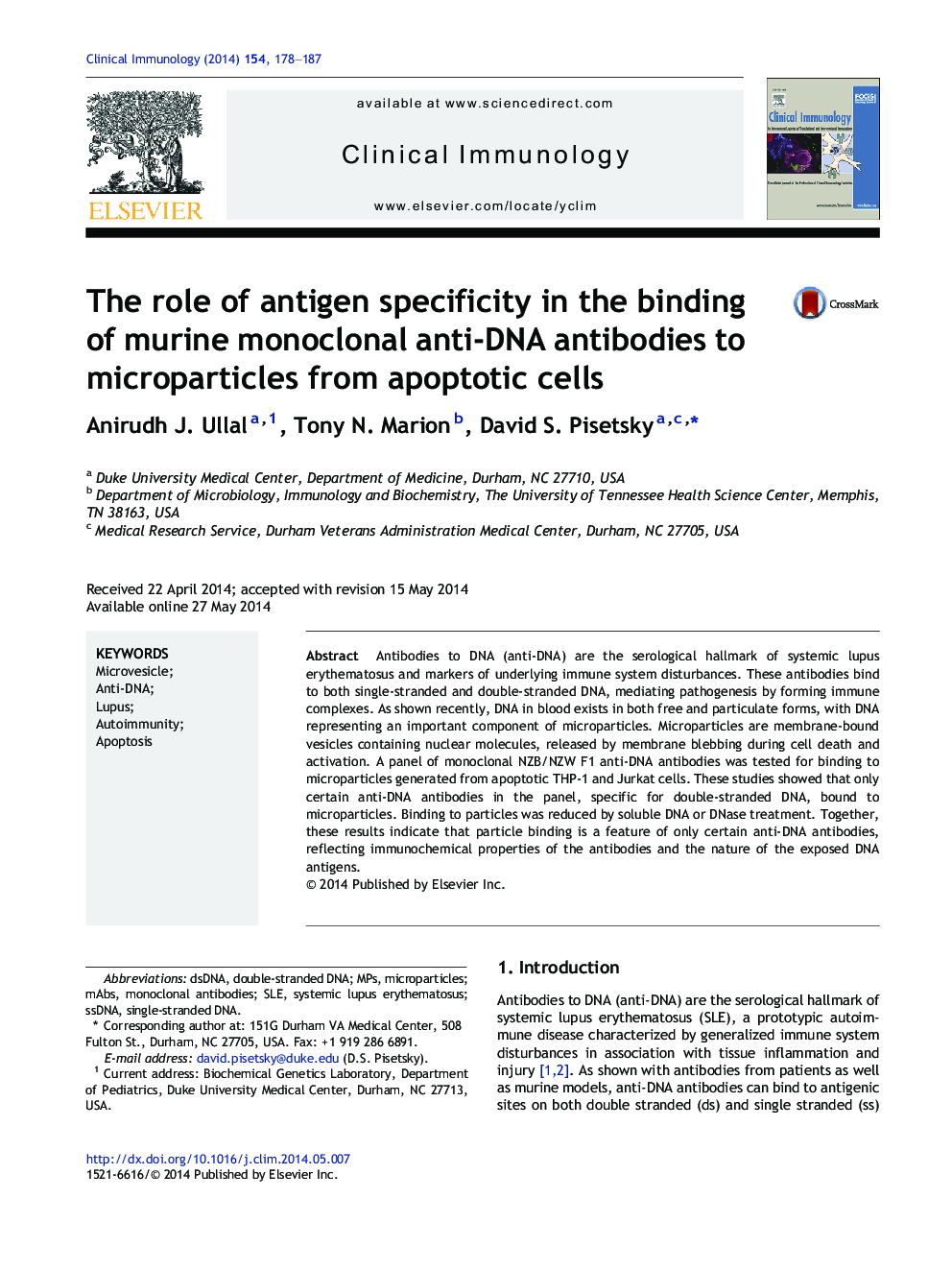| کد مقاله | کد نشریه | سال انتشار | مقاله انگلیسی | نسخه تمام متن |
|---|---|---|---|---|
| 3256877 | 1207368 | 2014 | 10 صفحه PDF | دانلود رایگان |
• Anti-DNA antibodies bind single- and double-stranded DNA to form immune complexes.
• Specificity of anti-DNA autoantibodies varies in autoimmune diseases like lupus.
• Anti-DNA antibodies to double-stranded DNA bind preferentially to microparticles.
• Microparticles expose DNA to the immune system in an antigenically active form.
Antibodies to DNA (anti-DNA) are the serological hallmark of systemic lupus erythematosus and markers of underlying immune system disturbances. These antibodies bind to both single-stranded and double-stranded DNA, mediating pathogenesis by forming immune complexes. As shown recently, DNA in blood exists in both free and particulate forms, with DNA representing an important component of microparticles. Microparticles are membrane-bound vesicles containing nuclear molecules, released by membrane blebbing during cell death and activation. A panel of monoclonal NZB/NZW F1 anti-DNA antibodies was tested for binding to microparticles generated from apoptotic THP-1 and Jurkat cells. These studies showed that only certain anti-DNA antibodies in the panel, specific for double-stranded DNA, bound to microparticles. Binding to particles was reduced by soluble DNA or DNase treatment. Together, these results indicate that particle binding is a feature of only certain anti-DNA antibodies, reflecting immunochemical properties of the antibodies and the nature of the exposed DNA antigens.
Journal: Clinical Immunology - Volume 154, Issue 2, October 2014, Pages 178–187
